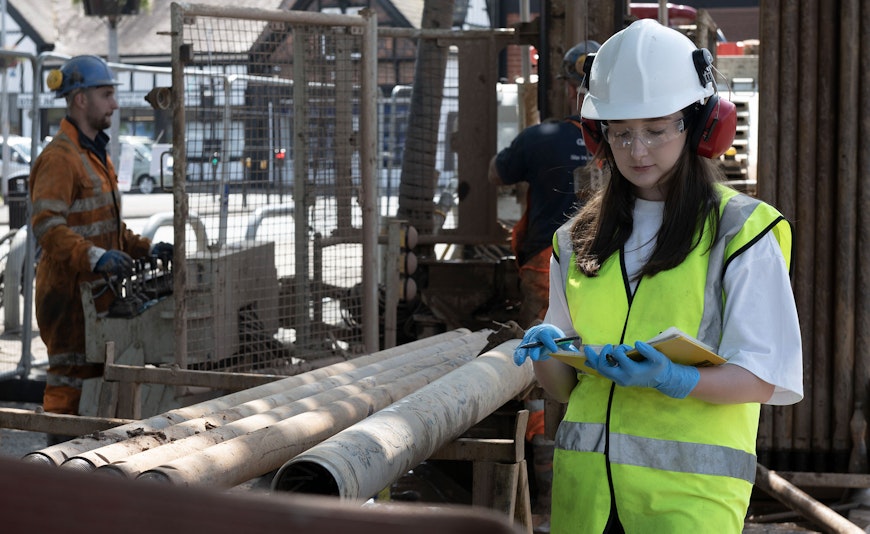Route 1: Apprenticeships
You can apply to Curtins for an Apprenticeship which will offer you practical, work-based learning, recognised qualifications and a weekly training wage from the age of 16.
Environmental engineers create solutions that help protect, restore and preserve the planet. Within construction they are responsible for controlling environmental hazards, flood risk and managing pollutants that would harm the natural environment.
“As an environmental engineer, I can work anywhere in the world and no two days are the same… and I get to work in the sunshine!”
James works as a Geo-environmental Engineer in our Leeds office. He graduated in 2019 from the University of Liverpool with a BSc (hons) and completed a masters degree in Engineering Geology at the University of Leeds.
You can apply to Curtins for an Apprenticeship which will offer you practical, work-based learning, recognised qualifications and a weekly training wage from the age of 16.
Engineering and transport planning degrees normally require an A-level or equivalent in maths, combined with other subjects depending on the discipline:
Maths + Physics / Chemistry / Geography / Economics.
Design & Technology and Computer Science are also useful.
You’ll also need five GCSEs grade C/4 or above including Mathematics, English and Science.
More information is available on the Prospects website.
With the theme for 2023 being ‘Skills for Life’ there is no better time to reflect on how apprenticeships support in the unlocking of individuals potential through knowledge development and transferable skills that support a rewarding and successful career.
It’s National Apprenticeship Week and we’re highlighting the value and positive impact our apprentices have on their projects, as well as the ��‘skills for life’ they have developed in their programme.
Someone asked me recently how it came to pass that I chose a career in engineering, and the answer is; ‘complete fluke’.





